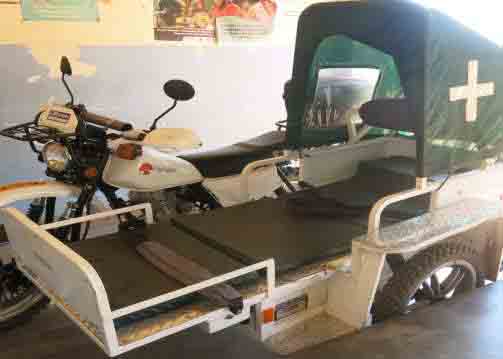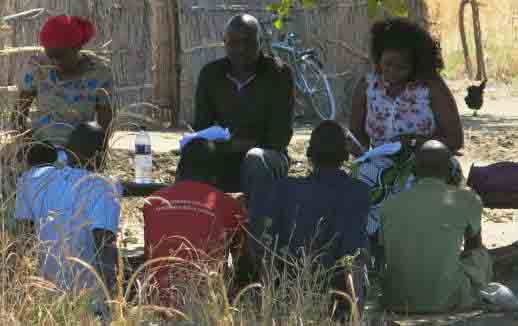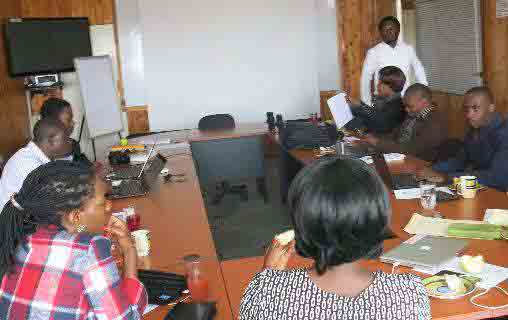Sustainable Agriculture, Food and Nutrition, Security and Climate Change, and Resilience
Project Name: Building the basis for scaling up Climate Smart Agriculture Project-Community Baseline Survey for the Sustainable Agriculture Production Programme in Malawi 2016.
Name of Client: Food and Agriculture Organisation (FAO)
The services of the project contributed to FAO strategic objective of Making agriculture, forestry and fisheries more productive and sustainable. By providing evidence on issues related to climate change, climate-smart agriculture, resilience and sustainable intensification, the services will contribute to Output 20101 - Innovative practices for sustainable agricultural production are identified, assessed and disseminated and their adoption by stakeholders is facilitated. FAO-EPIC funded a research aimed at consolidating the evidence base of implementing CSA technologies in Malawi by conducting community level surveys which would allow to appropriately attribute impacts of adoption pattern.
Project Name: Analysis of Soya and Dairy commodities value chain in Rural Livelihoods Economic
Enhancement Project (IFAD) supported districts.
Name of Client: Rural Livelihoods Economic Enhancement Project with support from IFAD and Ministry of
Local Government and Rural Development.
Evidence for Change Africa conducted a value chain analysis for the International Fund for Agricultural Development (IFAD), OPEC Fund for International Development (OFID) and the Government of Malawi (GOM) financed a Rural Livelihoods and Economic Enhancement Programme (RLEEP) in 2015. The overall goal and expected impact of RLEEP was to sustainably improve the incomes of economically active poor rural households and individuals engaged in the production, processing and marketing of selected agricultural commodities (crops, livestock, and fisheries) through their integration with the emerging commercial sector.
Project: End of programme for the SOS Childrens Village Emergency Recovery Programme and Climate Change Adaptation 2017.
Client: SOS Childrens Village Malawi
Malawi experienced floods and rainstorms from end December 2014 to January 2015 which affected many people across the country. SOS Children’s Villages Malawi responded to government’s appeal for support towards flood victims in the affected areas through an emergency response project in Mzuzu, Blantyre and Ngabu.
E4C conducted an endline evaluation for the SOS Childrens Village in Emergency Response and Resilience Programme in Mzuzu, Lilongwe, Blantyre and Ngabu project areas. SOS Children’s Villages Malawi responded to government’s appeal for support towards vulnerable households in the affected areas through an emergency relief project - Malawi Food Crisis Response for a period of five months from January to May, 2017.The OECD evaluation criterion of relevance, effectiveness, efficiency and sustainability was used in the evaluation.
Project: End of Project Evaluation of the 2015 Floods SOS-Emergency Response Plan
Client: SOS Children's Villages Malawi
E4C conducted this end of project evaluation to assess the programmes impact, relevance, effectiveness, appropriateness and sustainability as well as drawing out lessons and recommendations to inform subsequent humanitarian programmes by SOS CV Malawi.
Following Government of Malawi's declaration of 'state of disaster' following devastating floods in January, 2015, and appeal for local and international assistance, SOS Children Villages Malawi implemented an emergency response programme targeting affected households and children in Mzuzu, Chikwawa and Blantyre.
State of food insecurity assessment Report, based on the household consumption data 2005, Malawi report, FAO Statistics, Rome Italy August, 2007. The report gives an updated measure on MDG indicator4, proportion undernourished, Dietary energy consumption (DEC), Minimum Dietary Energy Requirement (MDER), Nutrition Indicators.
Collaboration on the global evaluation on Norad/Norwegian bilateral contribution to food security Malawi, Tanzania, Zambia, work was contracted to Particip, GMHB, Germany, 2012;
 Evidence For Change Solutions (E4C)
Evidence For Change Solutions (E4C) 






